Research
Unisa showcases world-class research by Africans for Africa and the globe
From 15 to 19 May 2023, Unisa is hosting its Research and Innovation (R&I) Week, during which academics from various Unisa colleges will be showcasing their world-class research under the theme World-class research by Africans for Africa and the globe. The event forms part of Unisa’s drive towards attaining the Sustainable Development Goals as set by the United Nations, and the objectives of the African Union’s Agenda 2063.
Finding solutions by Africans, for Africans and the globe
Setting the scene for the R&I Week, Vice-Principal of Research, Postgraduate Studies, Innovation and Commercialisation, Prof Thenjiwe Meyiwa, stated that during this week the spotlight will be on what Unisa could reflect on to redefine its research. She said that as the institution rethinks its research endeavours, it is also imperative to highlight the remarkable contributions that the university is making in many areas for students, staff and communities within the African continent and the world.
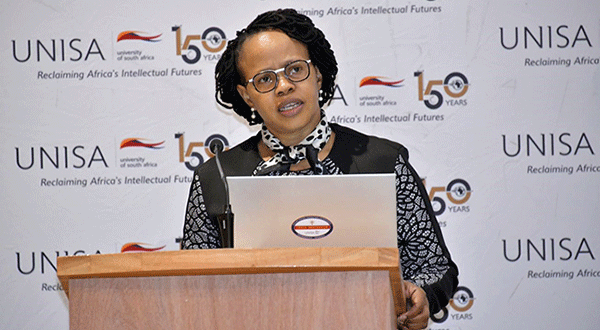
Prof Thenjiwe Meyiwa
Meyiwa remarked that Unisa is committed to playing a significant part in ensuring that higher education, science and technology, and innovation have a dynamic link with economic growth and prosperity.
"This week’s presentations, applications and exhibitions reveal an amazing diversity – an expression of embracing the wave of knowledge, which is finding solutions by Africa for Africa, and trading that with the globe," she stated.
Meyiwa reaffirmed Unisa’s position, stating that while the university continues to be a leading open and distance e-learning institution, stamping its authority with research excellence, the university remains determined to be at the forefront of scholarship in areas that the United Nations and the African Union, through various imperative sectors, are calling upon it to produce. This, she continued, is applicable, current, and impactful research.
Commenting on the institution’s 150th year of excellence in research, teaching and learning, Meyiwa said Unisa must maintain its course by producing advanced research. “As the largest university in Africa,” she said, “we are positioned to lead advanced and innovative research, and to improve the quality and delivery of teaching and learning. As it turns 150, Unisa has incorporated all that is ideal within the research and innovative strategies in our catalytic niche areas.”
In conclusion Meyiwa stated that the R&I Week will see academics test new applications and showcase research pursuits that they have been working on over the past few years.
150 years of pioneering research and innovation
In her opening address, Unisa Principal and Vice-Chancellor, Prof Puleng LenkaBula, began by stating the purpose of higher education and research, significantly stating that research cannot always be conducted for its own sake, but that it must benefit every facet of humanity.
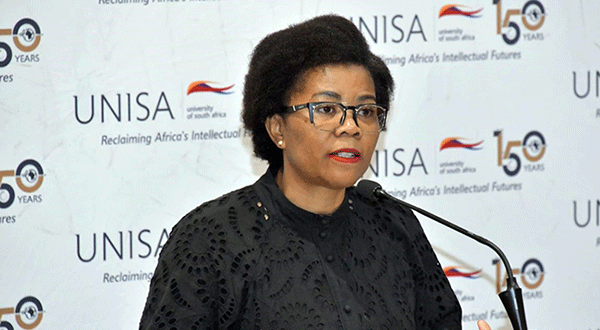
Prof Puleng LenkaBula
LenkaBula noted that in terms of global statistics about research, Africa’s output stands at less than 5% in the total. "I think it is important for us as researchers to look at whether this is the true reflection of the contribution of our continent," she remarked.
Empowering researchers for world-class innovations
LenkaBula stressed the significance of empowering researchers through arming them with the necessary tools they need for research. She stated: "It has always been the commitment of this university’s management to ensure greater investment in research and the scientific agenda of Unisa, and the impact of these in society. We are also ensuring that the next generation of doctors and professors are empowered to ensure that they are as competitive as those from the best universities in the world. This is something we should hold in high esteem, because at times we deem African intellectual resources as secondary."
LenkaBula said that for a century-and-a-half, Unisa has been a foundation and pioneer of the national system of innovation. "As we celebrate the historic milestone of 150 years, we also recall and showcase Unisa’s contribution to the ideas and innovations, inventions, and discoveries in the technological, scientific and political fields."
In conclusion, LenkaBula noted the significant contribution that Unisa continues to make towards meeting the National Development Plan’s targets, and the institution’s position within the top five contributors of master’s and doctoral candidates.
Innovative digitalisation of healthcare systems
Prof Godfrey Mugurusi, from the Department of Industrial Economics and Technology Management, Norwegian University of Science and Technology, Norway, delivered the keynote address, titled Healthcare digitalisation in Norway – From value chain to ecosystems. He said it is imperative to digitise the healthcare system due to the duress brought by COVID-19 complexities, and also towards improving access, equity, and sustainable healthcare practices.
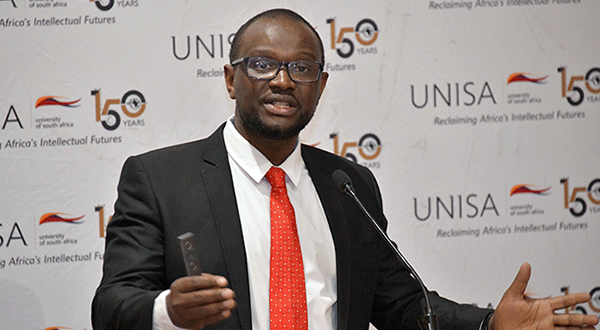
Prof Godfrey Mugurusi
Mugurusi defined digital health as tools and services that use information and communication technologies (ICTs) to improve prevention, diagnosis, treatment and monitoring of health-related issues.
Mugurusi noted that Africa’s health systems, when compared to the West, are structured around colonial ecosystems. This, he said, must change, and technology can bridge this gap. He also highlighted the significance of working in partnerships rather than in silo value chains in order to achieve significant progress in innovative research towards healthcare systems in Africa.
Mugurusi remarked on the challenges faced by healthcare systems globally, which include bureaucracy and the cost of technology. "Yet the benefits," he stated, "are worth striving towards. These include benefits for health care practitioners, patients, and the healthcare system. For example, healthcare systems free up capacity by automating repetitive tasks and improving triage, while it enhances the patient’s experience through predictive, preventative, and personalised care."
In conclusion Mugurusi posed an array of questions to the audience, including whether Africa should research and produce healthcare systems that are Afrocentric, and how they can be globally competitive.
#Unisa150
* By Godfrey Madibane, Acting Journalist, Department of Institutional Advancement
Publish date: 2023-05-17 00:00:00.0

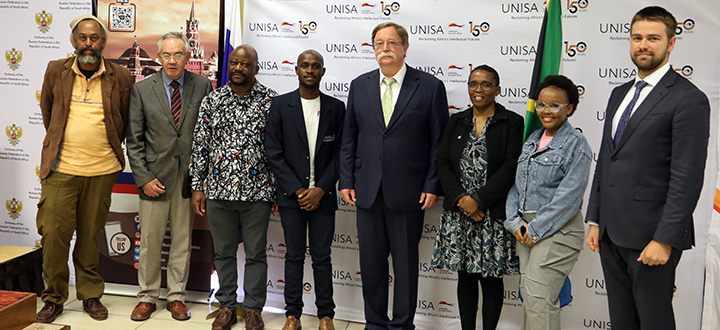 Unisa's student leadership engage with Russian ambassador
Unisa's student leadership engage with Russian ambassador
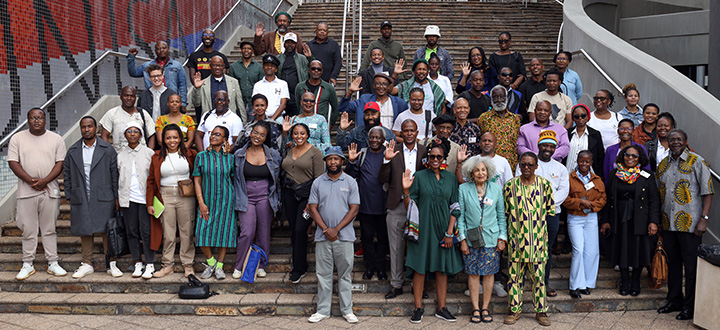 Re-igniting and re-imagining Pan Africanism, Afrocentricity and Afrofuturism in the 21st century
Re-igniting and re-imagining Pan Africanism, Afrocentricity and Afrofuturism in the 21st century
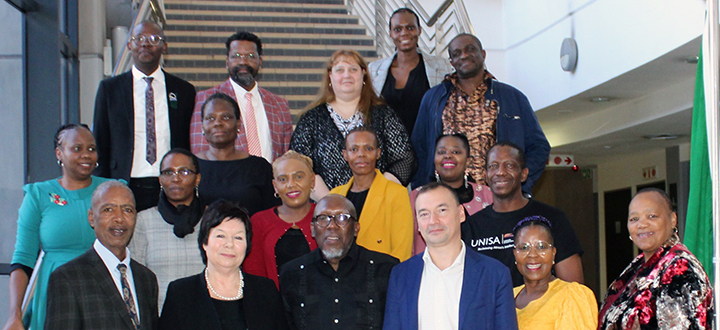 Unisa and Russian State University for the Humanities explore collaborative opportunities
Unisa and Russian State University for the Humanities explore collaborative opportunities
 Young Unisa science stars join elite Lindau Nobel Laureate group
Young Unisa science stars join elite Lindau Nobel Laureate group
 Education MEC addresses Unisa autism seminar
Education MEC addresses Unisa autism seminar